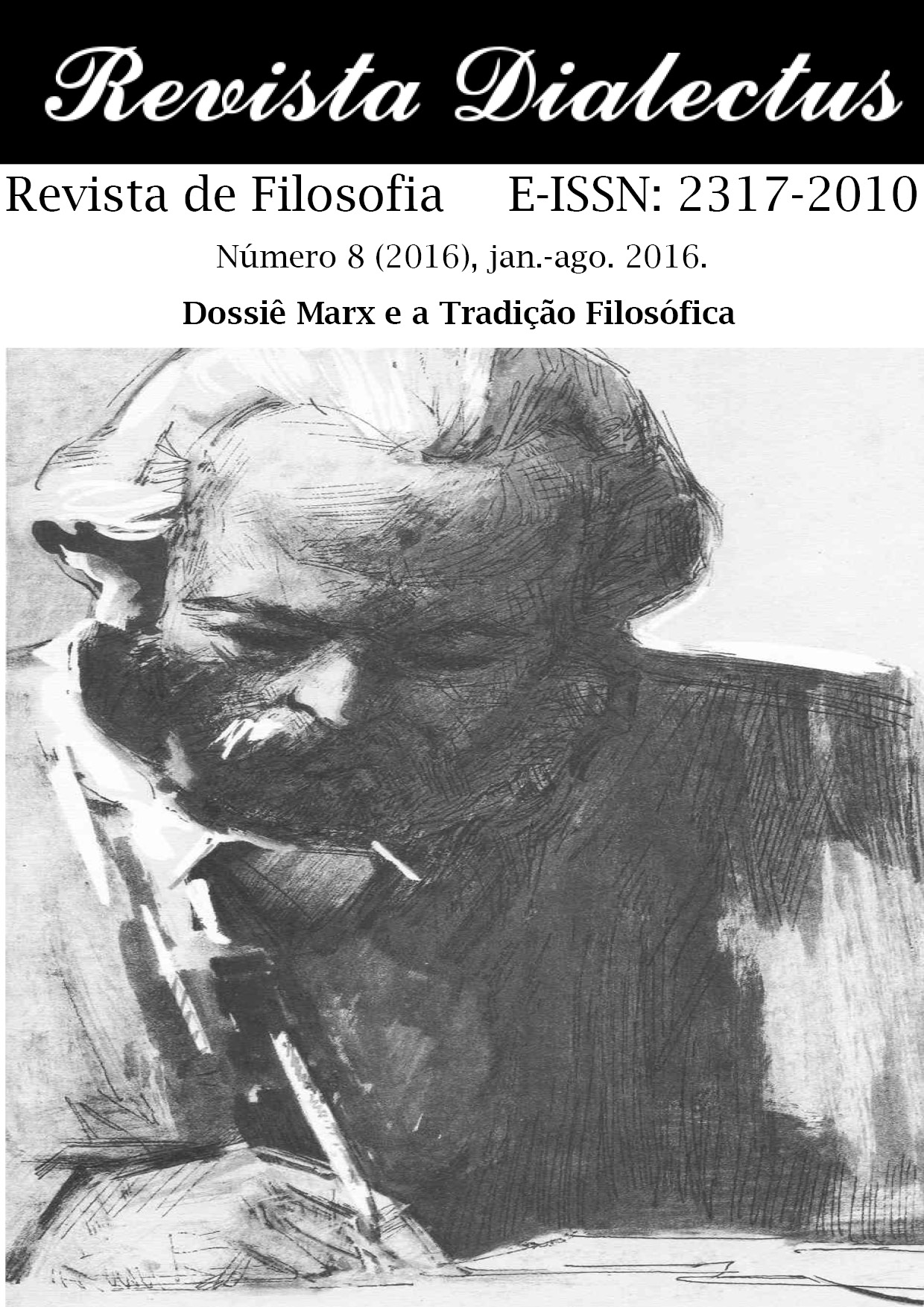O TRABALHO COMO FORMAÇÃO E DEFORMAÇÃO HUMANA EM HEGEL E MARX
DOI:
https://doi.org/10.30611/2016n8id5219Abstract
Aponto, inicialmente, uma positividade do trabalho em Hegel, que é recepcionada criticamente por Marx nos seus Manuscritos Econômico-Filosóficos (Ökonomisch-philosophische Manuskripte) (1844). Hegel defende na Fenomenologia do Espírito (Phänomenologie des Geites) que, pela mediação do trabalho, a consciência-de-si se torna consciência-para-si, autoconsciência, ou seja, que o trabalho forma, educa, a consciência. Marx vê na Fenomenologia do Espírito, de Hegel, uma grande realização, dado que Hegel concebe a “autocriação” do homem como um processo, porque compreende a essência do trabalho e porque evidencia o homem objetivo “como resultado de seu próprio trabalho”, mas Hegel reconhece só o lado positivo do trabalho, mas não o seu aspecto negativo. Ao contrário de Hegel, há em Marx uma concepção dupla do trabalho: tanto em seu sentido afirmativo (o trabalho livre e consciente, trabalho útil-concreto, vivo), quanto negativo (trabalho estranhado, trabalho assalariado, trabalho abstrato, morto).Downloads
Published
2016-10-06
Issue
Section
Dossiê Marx e a Tradição Filosófica
License
Authors who publish in this journal agree to the following terms:
- Authors retain the copyright and grant the journal the right of first publication, with the work simultaneously licensed under the Attribution-NonCommercial-NoDerivatives 4.0 International (CC BY-NC-ND 4.0) License, which allows the non-commercial sharing of work, without modifications and with acknowledgment of authorship and initial publication in this journal.
- Authors are authorized to take additional contracts separately, for non-exclusive distribution of the version of the work published in this journal (eg publish in institutional repository or as a book chapter), with acknowledgment of authorship and initial publication in this journal.
- Authors are allowed and encouraged to publish and distribute their work online (eg in institutional repositories or on their personal page) at any point before or during the editorial process, as this can generate productive changes as well as increase the impact and citation of published work (See The Free Access Effect).



















